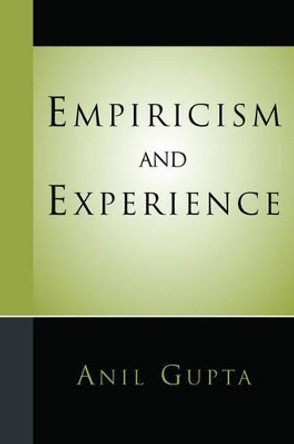Description
About the Author
Barry Allen studied philosophy at the University of Lethbridge and Princeton University, and is Distinguished University Professor of Philosophy at McMaster University, in Hamilton, Ontario. He has held visiting appointments at universities in Jerusalem, Shanghai, Istanbul, and Hong Kong, and is a Fellow of the Royal Society of Canada.
Reviews
For far too long, histories of philosophy have opposed one monolith against another, rationalism versus empiricism . . . lumping together ideas and practices that share nothing more than an appeal to experience and a vague suspicion of speculation... Allen seeks to restore some of these lost riches by surveying the long, variegated history of what it means to think about and with experience... To a degree unusual in the history of philosophy, Allen pays attention to the actual practices of empirical inquiry: the sagacity of clinical observation, the audacity of experiment. * Lorraine Daston, Common Knowledge *
Like all good works of historiography this work is driven and informed by a theory; that there is more than one kind of empiricism...Allen's book is thus a work of epistemology as well as intellectual history. * Stephen Davies, Metascience *
rewarding and intellectually nutritious * Stephen Davies, Metascience *
The role of experience in the empirical sciences can be an important check on empirical truth in the domain of science. At least Allen has not undermined that position. Valuable for history of science as well as philosophy. * P.K. Moser, Loyola University Chicago, CHOICE *
Allen revisits, deepens, and corrects received wisdom about empiricism's role in twentieth century analytic philosophy. He situates in the broadest possible frame four powerful thinkers whose significance for philosophy and intellectual culture more generally remains profoundly up for grabs: William James, Henri Bergson, John Dewey, and Gilles Deleuze. The book's detailed judicious comparisons of philosophers from traditions that tend to shun one another reminds me of Adrian Moore's splendid Evolution of Modern Metaphysics, and it's no accident that Deleuze is a key figure in both books. Building on his own earlier work on the anthropology of tool use (Knowledge and Civilization), the engineering disciplines (Artifice and Design), and traditional Chinese thought (Vanishing into Things), Allen tells a story with remarkable historical sweep, a diverse cast of characters, and profound appeal to non-philosophical readers. * David Hills, Stanford University *
In Empiricisms Barry Allen discusses Western philosophical approaches to experience and empiricism. The book offers insights into various traditions in an overall chronological organization. His discourse on the relation between medical practice, theory and philosophy displays a fine sense for historical dynamics and connections. * Dagmar Schafer, Max Planck Institute for the History of Science *
Book Information
ISBN 9780197508930
Author Barry Allen
Format Hardback
Page Count 540
Imprint Oxford University Press Inc
Publisher Oxford University Press Inc
Weight(grams) 953g
Dimensions(mm) 165mm * 239mm * 41mm





